Read the transcript of Jomo Kwame Sundaram's Video here ◂
My name is Jomo Kwame Sundaram. I live in Malaysia. I used to teach economics in the university, and then I worked for about eleven years in the United Nations system overseeing economic and social development research, first in New York for seven and a half years, and then at the Food and Agriculture Organization in Rome for three and a half years.
Thank you so much for joining me here on Skype. We met at the conference, Overcoming Inequalities in a Fractured World, where you participated at the round table “Engines of Inequalities: Elite, Politics and Power.” How did we arrive at this moment in which the richest 1% of the population holds half of the world’s wealth?
Well, I think from what the data tells us, especially about income, inequalities have grown a great deal, especially in the last two centuries, since the time of the industrial revolution, and the change of the type of imperialism. This has very important implications. What basically has happened is that a huge gap group between those economies which successfully made the transition to either industry or very highly productive agriculture such as the so called settler colonies of the British Empire; Australia, New Zealand, Canada, and so on. This gap has been extremely important, but in the last century or so, there have been some important developments.
We find, for example, that after the first world war during the 1920s, there was a continued huge increase in inequality but also in economic vulnerability. This led to the crash and the depression, particularly during the 1930s. At that time there were a number of measures, which were taken in the United States, which we often refer to as the New Deal, but also in other parts of the world to get to the support of the publics behind them. An extreme type of ethnopopulism, which we often call fascism, developed in countries such as Germany, in Italy and Japan, of course. But there were also other sympathetic tendencies in other parts of the world, such as Spain and so on.
Before that, there was a very strong reaction to these growing inequalities, the more successful reaction against it in the form of the Russian revolution of 1917. Then slowly over time, there were other revolutions, but many of the subsequent revolutions which took place were also wars of national liberation. This I think is very important to recognize what happened, for example, in China and later on in other countries such as Vietnam, were really wars of national liberation. These all responded to different types of inequalities.
These different types of inequalities at that time were used by certain forces to mobilize around what was called socialism and so on. Then there was another type of reaction against inequalities; the inequalities among the rich world, between the established imperial powers, colonial powers, and the rising ones, such as Germany and Japan and so on. This could not be resolved, and eventually it led to the Second World War. During the Second World War, many, many people were mobilized for the war effort, and especially women.
Women were mobilized because men were often the main people in the war, and so much of the rest of the economy, including the household economy, was sustained by women. After the end of the Second World War, it was not … you just could not simply go back to the status quo ante. You had to organize life differently. For about a quarter of a century after 1945, there were quite a number of reforms which were used to be referred to as part of the Welfare State.
These were reforms or try to reduce the inequalities of the century since the industrial revolution, before the depression. Most of the time when we talk about inequalities, we think about national level inequalities. This is especially true in the west. But for many others in the rest of the world, they are not only thinking about the inequalities in their own societies, but they are also very conscious of the fact that they have been left behind, they have been marginalized by the way society has changed.
If you look at total inequality in the world today, about two thirds of it is due to differences among countries, and about one third are differences of so called ‘class’. These differences, if you describe them as differences of location or geography versus class, you can begin to understand why so many people want to move, they see movement, migration, international migration included, as a way of overcoming their own economic insecurity and economic deprivations.
Of course, there are many other reasons as well, but this is extremely important. What has changed however, is that in the last two or three decades, there has been a very important change, that we found that in some parts of the developing countries, you began to see, maybe not two or three decades ago, even half a century ago, you began to see accelerated economic growth, first initially in places like Korea and Taiwan and so on, but also spreading to other countries in East Asia. Then from the end of the 20th century, there seems to be accelerated growth even in the southern cone of Latin America, and from the beginning of the 21st century, accelerated growth in some countries in Africa, because there was greater demand for the things Africa could produce, especially minerals, but also some agricultural production. The demand was not coming from the West. The new demand was coming from the east, from China, from India, and so on.
All this has significantly changed the world. Even though the initial motivation for what is called globalization was for the big corporations of the north to make more profits from controlling more and more economic resources all over the world, that whole process has had unexpected consequences, including the fact that many countries have been able to grow much more than ever before. Some of this growth has trickled down, including to workers; and especially where the workers and the farmers have been able to secure rights, their incomes have often gone up. So we have a world which has changed quite a lot.
Then of course we have seen, especially during the last decade, much slower economic growth in the west, and also in Japan. All this has meant that the gap between the north and the south has been reduced a little bit, but at the same time, in many countries, both in the north and the south, inequalities at the national level have increased.
So it’s a very complex picture about how the world has been changing. But I think it’s important to remember that geography means a lot, and class continues to mean a lot. Interactions between the two are not very straightforward. Globalization for example, the reaction to globalization is quite complex. For example, in the west, everybody benefits from cheaper products; products which are made in poor countries with very low wages for the workers and so on and so forth. Everybody benefits from these cheaper products. But when people lose their jobs, or their working conditions become worse because the employers and the big corporations have alternatives abroad, they do not feel it all at the same time. So the resistance to this very complex processes of globalization, and economic liberalization more generally, were used to be quite uneven and quite slow.
But recently, one decade of very poor economic performance, especially in the West, has resulted in all kinds of reactions, some progressive, some reactionary, but generally there has been a tendency to blame the other, to blame the outsider.
The outsider in terms of somebody who is culturally different, who’s alien, who looks different or behaves differently, and also to blame the rest of the world, other countries, especially those who are different culturally and so on. So what has happened now is that there’s been a resurgence coming back off what is called ethnopopulism. Also, especially in North America, in the US, we have seen the return of jingoism, nationalistic jingoism of national chauvinism. This is not new.
When the West believed that they won the Cold War, there was an element of that, but now it is much stronger and it is combined with these other elements. So, what we have is a situation where the opposition to economic liberalization is bigger than ever before, but it includes very many reactionary forces in addition to the progressive forces in who oppose globalization almost from the outset. In many ways you can see due to the transformation of the economy, of the transformation of social relations and the transformation of politics in the postcolonial world.
In the economic system we have today, it seems that in order to have winners, we need losers. Can we change it? How?
Our society today, it is quite possible to have economic growth which is shared. If you look, for example at China, China has been growing and real incomes for working people have been going up. Unfortunately, China is the exception. China is the only country where you have this kind of very clear rising tide lifting all boats. Of course, there are some very ridiculous multibillionaires in China as well, but the high growth rate has enabled this phenomenon to take place in China. In different times in society, this has happened in many other parts of society, if you think about northern Europe for example. Even today Norway, despite being one of the richest countries in the world, is also one of the most egalitarian societies in the world. But these two countries, China on the one hand and Norway on the other, are almost exceptional. In most countries, we see the rich growing at the expense of the poor.
One cannot deny that one of the benefits of so called globalization, were cheaper consumer goods for many people in the West. Okay. For the producers, the workers who are producing those goods, who didn’t have jobs before, they benefited from getting some jobs, some steady income. It is very low, very, very low, especially when compared to the west. But it was probably higher than before. You find that in countries like Bangladesh or even in Ethiopia, people are getting better off. But again, these are exceptions.
The way in which the West particularly, but also Japan, responded to the last great, so called Global Financial Crisis in 2008/2009, mainly using so called unconventional monetary policies. Firstly, those policies are very blunt. They can benefit all kinds of people, but the way the policies were implemented, it really helped the rich to become even richer.
So the concentration, not of income, but of wealth, especially in the United States … The United States is one of the more successful examples of recovery compared to Europe during this period. But there has been a far, far greater concentration of wealth. Very often, when we talk about economic inequality, we mix up the two; income and wealth.
But income is a flow and wealth is a stock. It’s important for us to recognize this. So, the availability of cheap credit, or what they call easy credit, enabled the people who could borrow to borrow very cheap and to buy up wealth from other people who were distressed. The result is this far greater concentration of wealth in the United States, but also elsewhere in the world. This is part of the reason why there is so much alienation and resentment, but also, unfortunately, misunderstanding. This is part of the problem in terms of addressing this issues.
We do not have the resources to make everyone as wealthy as a billionaire. Neither do we have the resources to live as the rich are doing. We do not have sufficient resources on our planet to sustain such a lifestyle. How do you feel about this?
Well, to put it in terms of a slogan, we have enough for everybody’s needs but not for everybody’s greed. This is a slogan associated with Gandhi, but possibly it was there even before Gandhi. But I think that message is quite clear. Now, you’re quite right. This is a dynamic which we have in our society. But some of the recent technological developments are accelerating this process and part of these processes.
Part of the problem, of course, is that there is a very weak sense of social solidarity. Some of the people who are able to organize social solidarity do so on a reactionary basis. This is a very major problem. Unless you can organize an alternative, successfully organize and sustain an alternative, we’re in very, very serious trouble. As far as the problems of resources are concerned … I mean, the challenge is that it’s not simply as many people like to say, about all the population, human population is growing and so on and so forth.
Part of the problem is that we are taking resources from the earth without thinking about sustainability. We are also in the process of human consumption producing a lot of side effects, which are not going to go away, which are reducing the quality of life, increasing pollution and so on – more greenhouse gases and so on. All of which are going to have adverse effects not only for ourselves but for future generations.
Unfortunately, it’s not easy to organize solutions. Part of the problem is that everybody wants to have what they call win-win solutions, so that the people will benefit, but also the businesses will benefit. Of course there are some such options, but very often business is most interested in promoting solutions which will benefit themselves. The benefit to society is a secondary consideration. There are not many occasions when the two coincide. So, it is very difficult in our society which is becoming increasingly individualistic.
At the conference, you spoke about capitalism and the near future. What options do we have?
Well, what I was saying at the conferences is that, in the near future, capitalism is the only show in town. There is no immediate alternative to capitalism. The anticapitalist forces are not strong. However, what I was also saying is that there are varieties of capitalism.
What is happening in China today or what is happening in Norway is not anticapitalist. It’s different type of management of capitalism. Likewise, with Bangladesh, they are not some other type of society, but they have learned to moderate capitalism. They have learned to manage capitalism, just as Roosevelt tried to do during the 1930s. Roosevelt was not a socialist. During the 1940s, when various reforms were taking place in Western Europe, ’40s and ’50s and so on, these reforms have helped improve conditions, reduced the worst inequalities. But to say that that was the end of capitalism, I think would be a great exaggeration.
Of course, there are some right wing libertarians who think anytime there is a role for government, that is the end of capitalism. Of course that kind of simplistic thinking is becoming quite popular. But leaving that aside, I think there are varieties of capitalism. What people will need to think about is also how we can mobilize some of those forces to do some good. Let me give you a simple example; during the time I was working in the United Nations, we proposed the idea of a Global Green New Deal.
We wanted to capture the idea of Roosevelt: a new deal with certain responsibilities of not only for the workers but also for the capitalists and so on, including paying taxes and so on. But in addition, we recognize the challenges of sustainability which we face in the world; resource depletion and exhaustion, the continued destruction of the environment, destruction of the basis for continued existence on earth.
Also, we raised the question, we said that because of the huge inequalities in the world today, these have to be inequalities which are going to be dealt with, and not just at a national level, but also global. That’s why the very clumsy slogan of a Global Green New Deal. We propose specifically that we have a golden opportunity.
This is 10 years ago, right? The golden opportunity to reduce poverty – especially what we call energy poverty – in the south by a massive subsidization of electricity from renewable energy sources in the south. Much of this was conceived of as solar. Some of it of course, could have been from other sources, so wind turbines and so on. At that time, we thought that the unit costs were coming down, but not coming down fast enough. There was a need to subsidize electrification in the south.
You cannot rely on existing demand because they are very poor people who do not have the resources to buy electricity at market rates, especially if you start introducing things like carbon taxes and all that without thinking about the distributional implications. So, that was our proposal. Unfortunately, because of this idea of independent power producers generating electricity, and the government should not be involved in producing electricity and so on, what we find is that business interests have become so powerful.
We have very, very powerful lobbies, which are misleading governments, misleading publics about the real options. I think we have a situation where we can actually move quite rapidly to renewable energy. This was part of the proposal to think about how to deal with the economic crisis in terms of changing the social relations.
It was not going to be the end of capitalism to be sure, but, if successful, we would have seen many people who have never had access to modern electricity, would be able to have access to modern electricity and to be able to improve the conditions of life. For example, to use the mechanical power to overcome the drudgery of certain types of manual labor, or to use electricity for cooking instead of certain fossil fuels or to use electricity for studying for children. All of this could have been made possible.
So, we should not say that the only thing is to end capitalism, but we need to begin to think about how we can improve things if the economic system does not fundamentally change. How do we manage it better so that we do not destroy the very basis for our own futures in existence.
What could also be done to initiate progressive change?
I don’t think there are any universal answers. There are no universal answers. I think those days when people thought in terms of a single force, with a very clear blueprint for everybody are no longer there. We have to begin to think creatively, recognizing that not everybody wants to change the system.
People all dream of a better life, but they don’t necessarily all want the same thing. We need to unite people to overcome the divisions which have been growing in recent decades, and to be able to mobilize them successfully; and mobilize them not just to replace one set of leaders with another set of leaders, but rather to be able to bring about much more fundamental and deep rooted transformations. It is always a context specific challenge. You cannot talk about it in the abstract.
If you had the power to change one thing tomorrow, what would it be?
I would begin with health and nutrition. Health and nutrition involves entire families. I see the possibility in health and nutrition for greater leadership of women. This I think is also important. The transformation of social relations will also involve transformation in the household. This I think will be important.
Part of the focus on nutrition is because many of the problems are not entirely systemic. Many of them have become, even if their origins are systemic, they’ve become part of our behavior. We are subjected to all kinds of propaganda from food companies, from beverage companies. We have changed our lifestyles and we are now suffering a lot of health and nutrition problems because of what we eat and drink. This is self-inflicted in some ways, or at least it appears to be so.
We need to begin to think about that, and to address that. If we are going to be serious about universal health coverage, it means that the price of medicines has to go down. Everybody should be able to afford decent health. As people deal with these problems, with health and nutrition issues, they begin to understand the subtle ways in which this system affects all of us. It’s not only at the level of production, but also at the level of consumption. In recent times, I’m putting a lot of emphasis on this, partly because perhaps this might be the way to go forward. When you think about health, you also have to think about, for example, the consequences of global warming and how it affects us. For example, when you think about sustainability, there are different options involved.
All this becomes important when you think about nutrition, you think about food. What you said earlier about producing for people’s needs – there’s enough for people’s needs, but not for everybody’s greed. The satisfaction which is derived from just having a good meal, a good healthy meal rather than a very, very expensive and costly meal. There are many issues which people become aware of. For example, the excessive use of agro-chemicals to produce food. As they become more aware of food and how that food affects their wellbeing, their health, their nutrition, then I think this kind of awareness is very healthy for people to begin to understand how the system operates.
You mentioned you see the possibility for more leadership of women. Could you tell me more?
In many traditional households, the division of labor is such that the decisions about household consumption are still made by the women. So, if you are able to enhance the power of the women there … Traditionally we think in terms of production, but we also should think about consumption and reproduction. For example, if a woman … if you think about nutrition, the current scientific consensus is on the first thousand days. That means from the moment of an unborn child’s conception until the child reaches the age of two, the mother, the prospective mother needs to be aware.
So there are certain health considerations involved. The mother has to be aware, and nutrition and health of the unborn child in terms of what the mother consumes, the interconnectedness of society; in this case between mother and child, but also the support system of the family and beyond is something you begin to appreciate more in this kind of context.
The household is just the nexus for this changing human relations, changing relations. So when the decisions are being made, which affect nutrition, affect health, and the decision making shifts, if we assume men bringing in money from the market – which is not the case; in many, many places it is the women who are working in the farm, or women who are working in the market. But that power associated with bringing income has to be shared.
If you take a different view about health and nutrition, and of course if you extend that to the appreciation, the greater appreciation of what now people call ‘care work’, that has important implications as well.
Who is ruling the world?
Well, I think there are different types of power. There’s what is called economic power. There’s a political power. There is a power associated with the state where even judges have some discretion. Then also, in some societies, legislators have considerable influence because they set the rules of the game.
Then you have a soft power as well. This notion of soft power. Power doesn’t just come from the barrel of the gun. It doesn’t come from the repressive apparatus of the state. It also comes from the powers of persuasion of, for example, the cult of certain personalities.
So there are different types of power, but I think given how things have changed in society, it is probably the power associated with wealth, which is the most important, because many of the politicians unfortunately are available … Some people joke, ‘we have the best election money can buy’, and there’s some truth to that.
But again, it is the way power is shared and distributed in many societies changes, and it changes over time. Where individuals locate them … see themselves and in their relationship into power.
A small farmer in a village, you could talk to them about the power of a big transnational corporation. It’s very difficult for them to appreciate it or the power of Google. It’s not easy to appreciate that. This is the problem. You may have very, very powerful rich people who are abusing their power and so on. But it is not self-evident to everybody that this is the case. Some of the people we may not like, maybe as seen, if you have a big company offering goods at very low prices, they are making billions. But do we, who go to those shops, resent the existence? It’s much more complex kind of situation which we live in. Yes.
Do you have a dream?
I’m so tired from work that I hardly have the chance to dream. Of course you want things to be better, but I don’t think I spend much time dreaming a dream.
What is life about?
I would like to go with the thinking that I have done something to make life better, especially for those who are marginalized. I mean, many people, because I live in Asia, they ask me why I’m still writing about African issues. Partly because of my names, I feel a connection, but also it is a way of reminding oneself that it’s not just about ourselves. When we say we, we the people, it is not just ‘we’ in the narrow sense of a ‘we’, but a broader sense.
You were named after two African anti-colonial leaders, but beside your background, what motivates you?
Only because I have continued to do things without any success. People often ask me, why bother? It’s not a very easy question to answer, but from an early age, I guess, I was quite happy to be innovative without necessarily being officially appreciated.
Perhaps it is their attitude. You need to be a change maker. Thank you so much for this conversation.
Okay Nerina. All the best. Thank you.
Thank you so much for watching. Thank you so much for listening and thank you so much for sharing. Next time we are going to continue with our mini-series about inequalities. Hope to see you soon again. Bye and ciao.


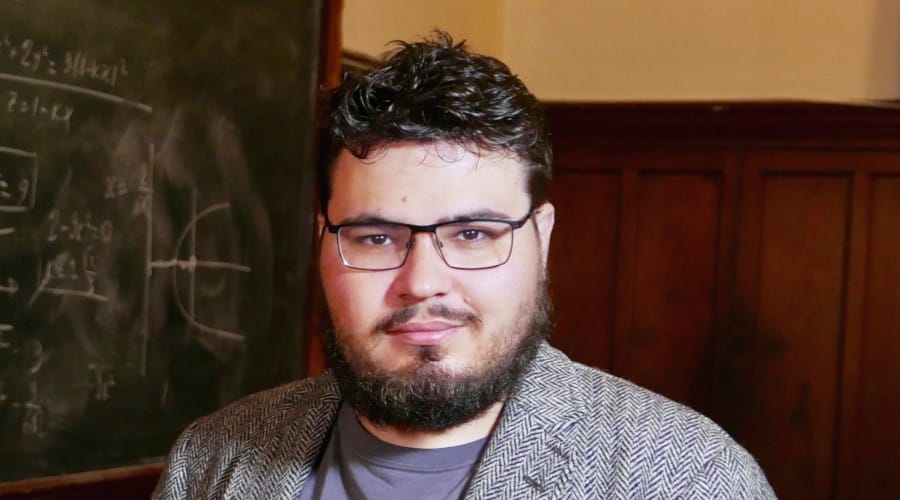
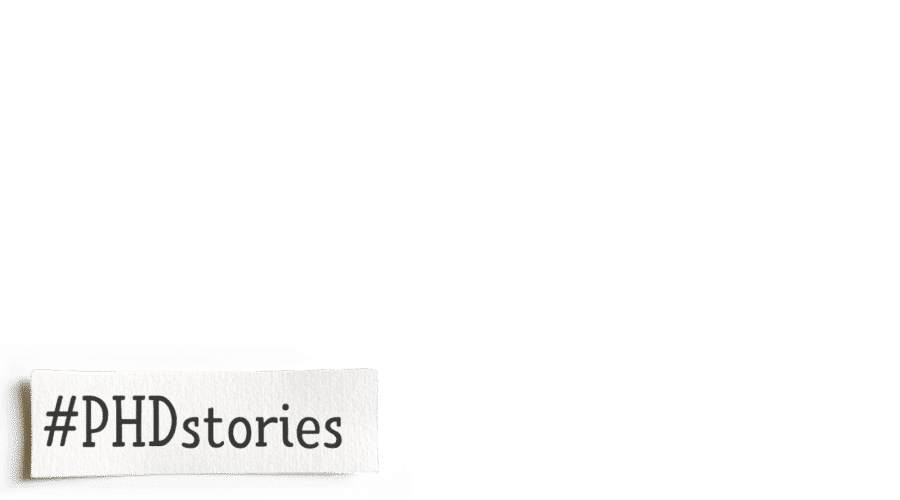

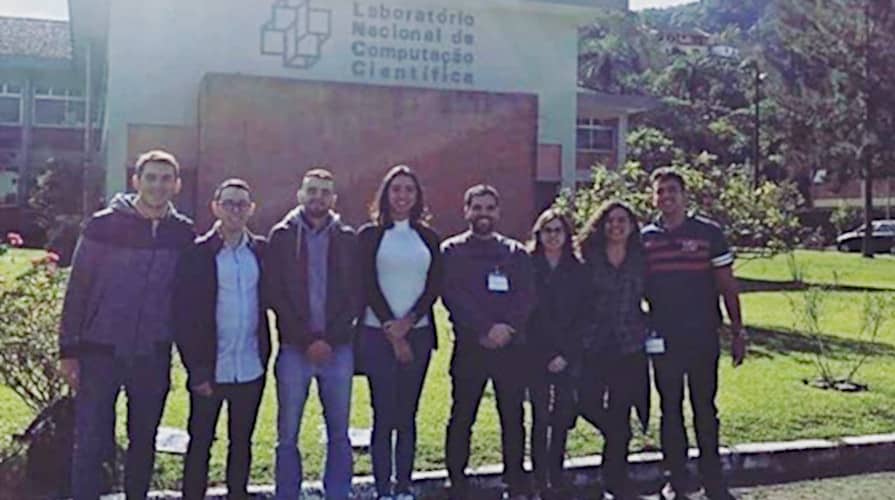

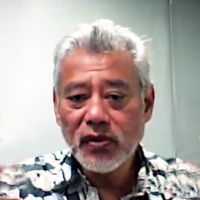
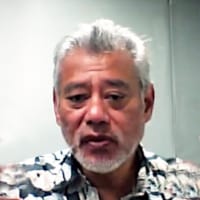

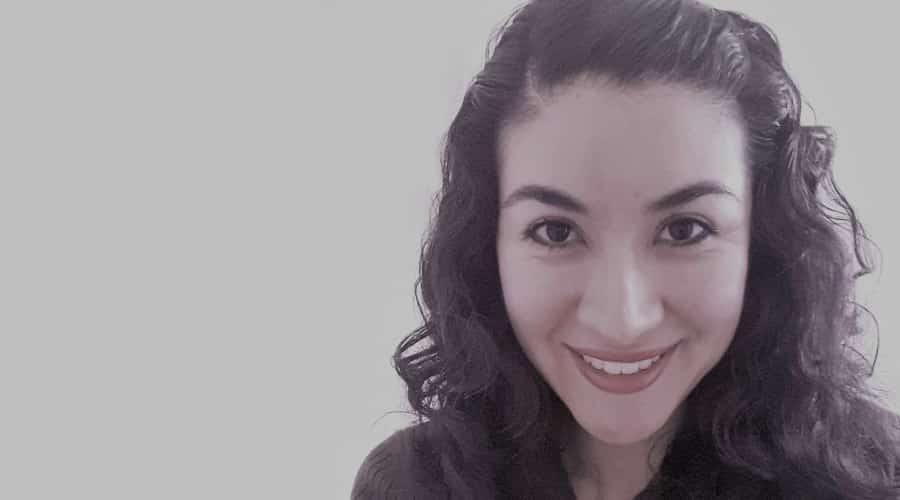
We are navigating recklessly toward our future using conceptions of time as primitive as a world map from the 14th century. …As a species, we have a childlike disinterest and partial disbelief in the time before our appearance on Earth.
Just as the microscope and telescope extended our vision into spatial realms once too minuscule or too immense for us to see, geology provides a lens through which we can witness time in a way that transcends the limits of our human experiences.